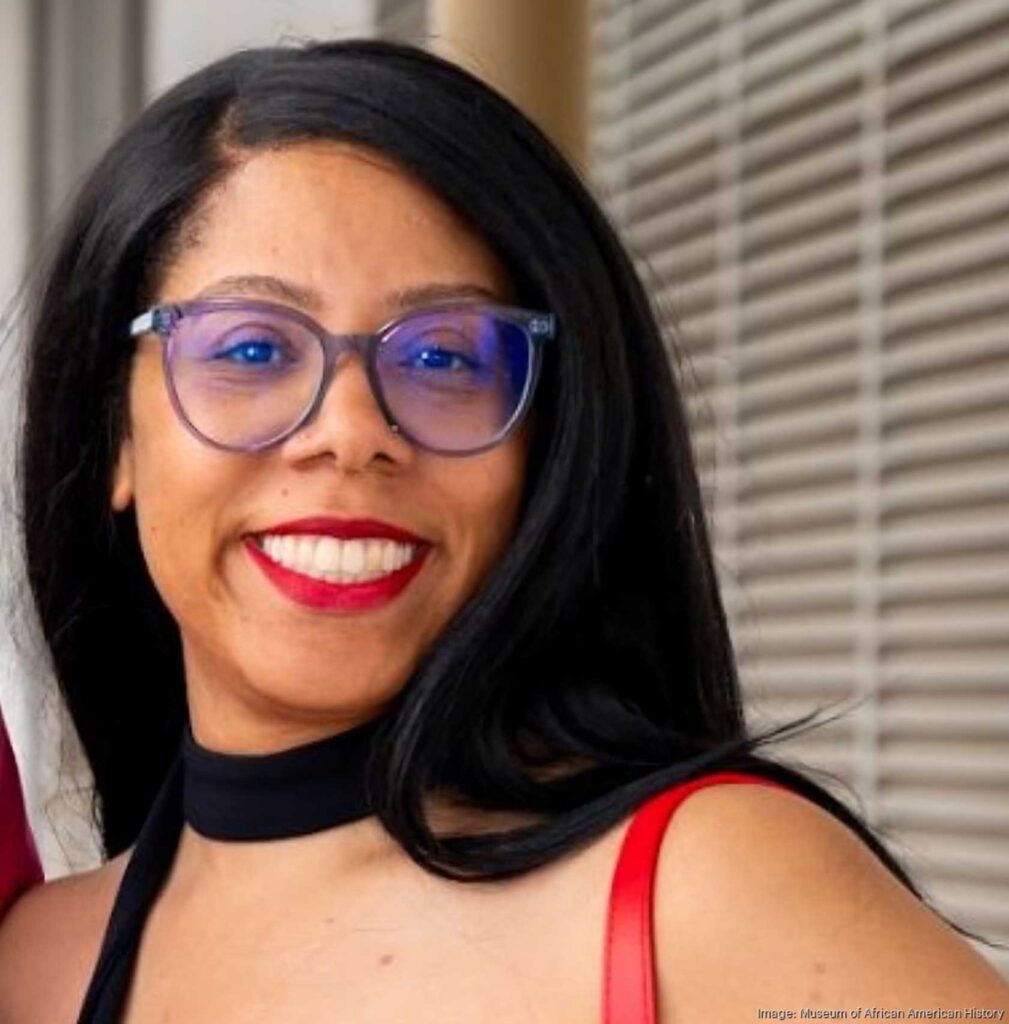
The Museum of African American History – Boston | Nantucket has named Angela Tate as the chief curator and director of collections. Tate previously worked as the curator of women’s history at the Smithsonian’s National Museum of African American History in Washington, D.C., as well as co-chair for the curatorial committee of the Smithsonian’s American Women’s History Initiative — now known as the Smithsonian American Women’s History Museum.
This announcement comes just fifteen months after the museum named a new CEO — Noelle Trent — who previously worked as the director of interpretation, collections, and education at the National Civil Rights Museum in Memphis, Tennessee.
Tate is a historian who largely focuses on the telling of Black Americans’ stories, specifically Black women. Recently, she participated in the creation of a new exhibit at the National Museums of African American History and Culture, “Forces for Change: Mary McLeod Bethune and Black Women’s Activism.”
“My expertise in curatorial work and collections combined with my academic background in African American and African diaspora history enhances the museum’s ability to tell the full story of Boston and Nantucket’s Black and POC contributions to Massachusetts’ origin story, the founding of the United States, and the broader context of civil rights and social justice,” said Tate in an interview with the Boston Business Journal.
During her time as a Smithsonian curator, Tate accomplished feats such as acquiring and stewarding the largest collection of Phillis Wheatley Peters’ works in a public installation and moderation panels on the women of the Black Panther Party. Phillis Wheatley Peters was a poet and enslaved person who lived in Boston in the 1700s, considered to be the first African American author of a published book of poetry.
“In addition to curating thought-provoking exhibits, Angela has developed timely programming, symposia, conferences and events that have attracted broad audiences. As we continue to transform Massachusetts’ own Museum of African American History, Angela will play an essential role in bringing our vision to life,” said museum CEO, Noelle Trent.
Along with her impressive contributions to museums around the country, Tate is also a Ph.D. candidate in history at Northwestern University. Her research, largely focused on the history of Black women in radio and their influence on the global civil rights movement, is supported by the Mellon Foundation, the Social Science Research Council, the New York Public Library, and Radcliffe’s Schlesinger Library. She was also the 2023-2024 Propel Program Fellow at the Association of Art Museum Curators.
“Through programs, events and exhibits, I hope to showcase America’s founding through the lens of African American history and the African diaspora with a special emphasis on the diverse experiences and significant contributions of Black women,” said Tate. According to her, her priorities include highlighting the unique role that Massachusetts plays in Black history and vice versa.
The nonprofit MAAH, with locations on Beacon Hill and in Nantucket, has been telling stories of African American history since 1963. Beyond museums, it operates sites that tell the history of Black New Englanders like the two African Meeting Houses, the Abiel Smith School, and the Seneca Boston-Florence Higginbotham House.
“It’s an opportunity to explore new narratives and methods for curating the spaces on both campuses,” said Tate. “The museum has existed for several decades and hopefully for several decades more, so while we are keeping an eye on key events, it is also important to do the work well enough to sustain future generations of employees to build upon and future audiences to engage with.”






